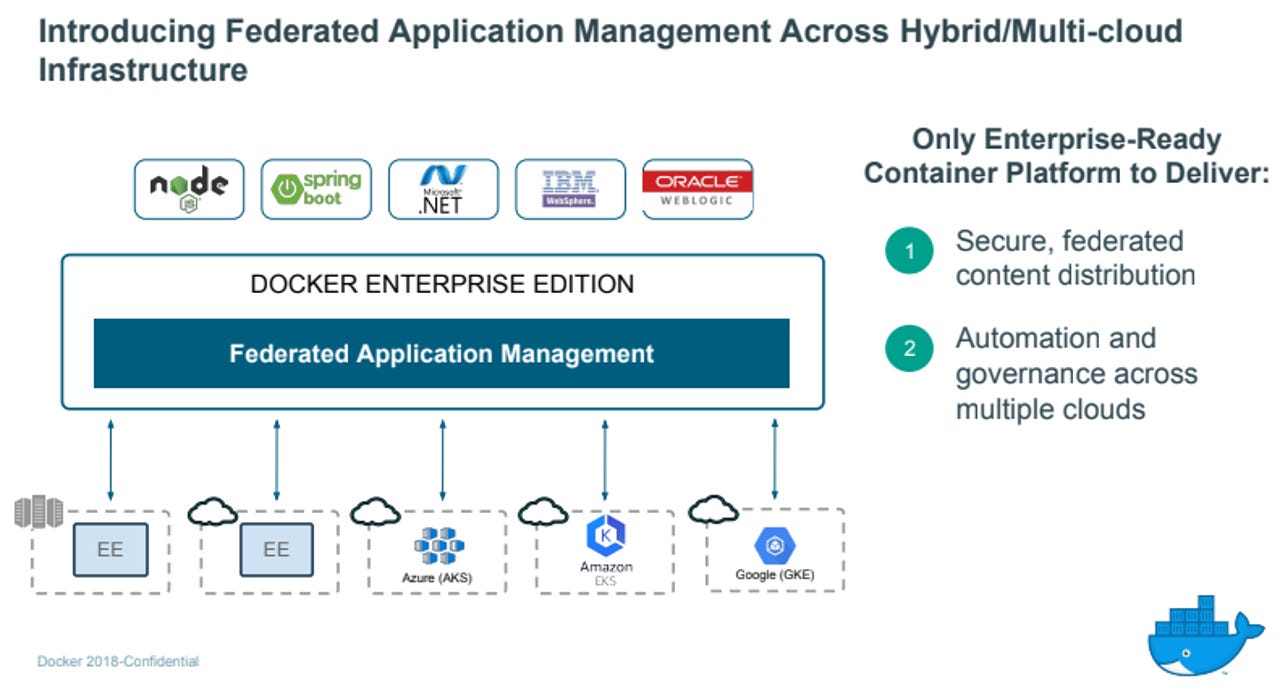Docker now helps you manage containers across clouds


Docker on Wednesday is announcing a series of new capabilities and tools for the enterprise, starting with the ability to manage containerized applications across multiple environments.
This capability will help organizations as they grow, so they don't have to adopt a different set of container management tools every time they adopt a new cloud provider.
"While containers and containerized applications are portable, the operations and tools around user management, deployment, logging, monitoring -- those are pretty specific to the different environments to which they're deployed," Docker's chief product officer Scott Johnston said to ZDNet. As a an organization grows, he explained, "you get more and more of these inefficiencies."
Additionally, Docker is updating its Enterprise Edition so that customers can manage applications deployed on Kubernetes on Windows. The update follows Docker's April announcement, when it made Kubernetes available on Linux.
Meanwhile, Docker is also unveiling templated workflows to make Docker more accessible to a wider range of developers. Johnston described the templates as "scaffolding" that a developer "can drop their application into and have it automatically built and brought into the Docker environment."
Most developers, he said, "want to focus on the business logic they're tasked with creating. It's very hard for them to become Docker experts."
The announcements, Johnston said, are "first and foremost about choice -- meaning, let customers deploy to the cloud or cluster their economics or service level requires."
They also cater to the growing need to use containers at scale. Docker, Johnston said, has seen "great signals that the container market is emerging from fringe technology to being widely adopted by enterprises as their default application environment."
To enable the simple management of deployments across environments, Docker is giving its Enterprise Edition customers access to a single dashboard with an aggregated view of all their applications. Via that dashboard, they can decide where to deploy applications, or they could migrate or replicate them. It also gives them consistent security and policy enforcement across deployments.
The ability to deploy and manage clusters from a single dashboard should be useful in a variety of scenarios. For instance, an organization may want to run the same application in multiple countries for compliance reasons. Alternatively, a company may want to test an application in the cloud but move production to its own data centers. Or an organization may want different teams accessing different clouds -- say, Google's cloud for machine learning and AWS for IoT services -- without losing operational efficiency.